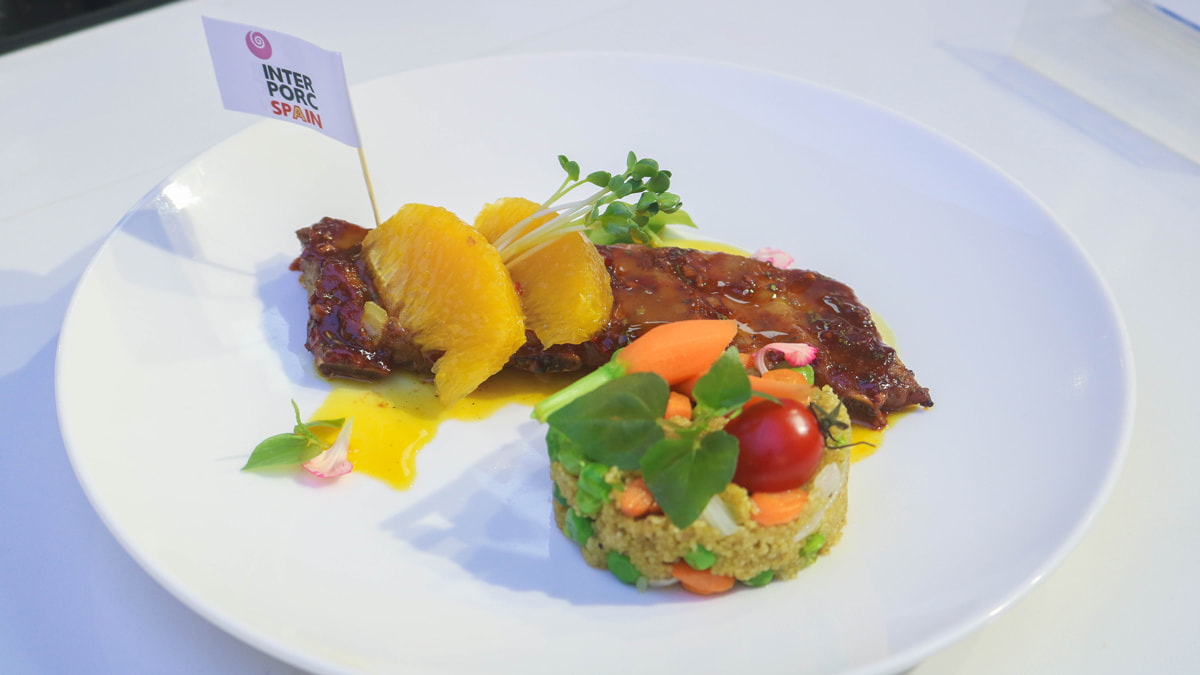How did a country manage to remain a top-3 pork exporter with a 16% growth forecast at the close of a rather ill-fated 2020? The answer to Spain’s international success in the pig sector lies with their holistic approach: committing to every angle of customer demand - from food safety, sustainability practices, animal welfare to better visibility and understanding of the sector.
A sense of responsibility: What makes a strong leader
To be a leader in the meat industry, a business often fraught with problems of transparency and management, means not only excelling in numbers, but managing with an innovative mindset. Beyond its efforts to step up productivity, the pork industry in Spain also aims to improve every step of the process, for a future that benefits all involved. Many countries in the world, Vietnam included, have come a long way in implementing stronger welfare and sustainability measures into their enterprises, but Spain has already mastered this sensibility into perhaps one of the least glamorous industries.
Short for Organización Interprofesional Agroalimentaria del Porcino de Capa Blanca, Interporc is a Spanish not-for-profit entity that represents the large white pig sector, including production, processing and marketing. Though Spain is the world’s third largest producer of pork products (just behind Germany and the United States), the country’s strength as a leader shows in every part of the process.
Because in Spain, the pork industry is the quintessential model for modern livestock farming anywhere in the world. Complying with the strictest animal welfare, animal safety and environmental protection laws, the industry operates with conscious respect to all areas of the production processes. Good practices extend towards care and respect of the environment, consideration to livestock welfare in all phases, ethical systems in the value chain, as well as assuring food safety from the field-to-table traceability system.
Ensuring welfare and sustainability of workers, animals and the environment
Efforts from Interporc have put long-term sustainable practices at the forefront of the industry. Continued innovation in water conservation and manure management has, for example, contributed to a drop of 14.6% in greenhouse effect gas emissions in the last 10 years. The improvement shows even steeper change over longer periods: the reduction of harmful methane gas dropped 15.3% between 2007-2016. That’s a reduction of 47% per kilo of meat produced since 1990, a tremendous achievement despite increasing output.

Along with the already demanding European laws, Interporc is also firmly committed to animal care. It has set animal welfare and sustainability as the fundamental pillars of all branches of its activity. The "Welfare Commitment", drawn up by Interporc, establishes the highest standard throughout the entire chain within the IAWS Technical Regulation. As a matter of fact, the certification is one of the most ambitious European standards and adapts to the European objectives of the "Green Deal".
Through this initiative, animal welfare, animal health, biosafety, handling and traceability through the entire white pig food chain are all guaranteed.
This means that farmers have not only improved the facilities of the farms to ensure animal welfare, but to create a sustainable production model from the beginning until the end; thus, the conceptualization of the "from farm to fork" strategy. This also seeks to provide transparent and truthful information about the origin of meat to the consumers, as well as to highlight the sustainable and safe ways of the pork production.
Innovation is key
How does this all compare to the industry in Vietnam? A versatile ingredient in many traditional Vietnamese dishes, pork is the most consumed meat in the country. Though sixth in the world in terms of total pork production, Vietnam however, exports less than 1% of it. Improvements in farming and production practices will be crucial if Vietnam wants to become a major exporter, and looking even further ahead: implementing a sustainable mindset, and systems that put worker and animal welfare at the fore.

No doubt Interporc has supported a continuously striving industry in Spain, but their efforts extend beyond borders. Since 2018, Interporc has been part of the United Nations Global Compact Spanish Network for achieving all 17 designated Sustainable Development Goals (SDG). Initiatives both past and ongoing include cooking classes for all social groups and training for health professionals, which encourage a community of sustainable living as well as equal access to quality education. Just as well, Interporc supports new technology for more sustainable infrastructure, in-depth research to combat livestock diseases, and innovations for healthier meat products.
Interporc is an entity driven by innovation and the continuous will to keep evolving. And evidently, the efforts are paying off: the pork sector strives and contributes robustly to Spain’s economy, thereby supporting the meat industry as a whole. Whether pork-centered or not, any organization can benefit from the holistic approach that Interporc takes.
